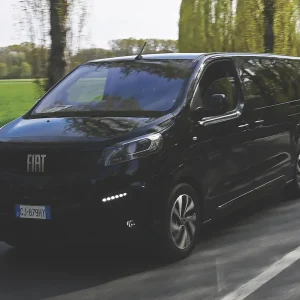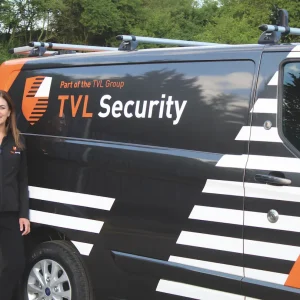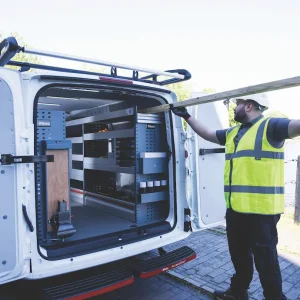All vehicles with a permitted gross vehicle mass (GVM) in excess of 3500kg are required by European Law to obey EU Rules on Drivers’ Hours and Tachographs if that vehicle is used in connection with “hire and reward”.
 Vehicles towing trailers are also included in the regulations by virtue of having a gross train weight (GTW) in excess of 3500kg. It used to be only goods-carrying trailers that were considered by the police and the Vehicle and Operator Services Agency (VOSA) to be covered by the regulations, but after a test case it was ruled that every type of trailer on business use must comply. Crucially, this is not based on the actual weight of the vehicle, load and trailer, but is entirely based on the maximum permissible weight. So if your vehicle identification number plate is showing a permissable maximum in excess of 3500kg, you may well need to fit a tachograph to your van and get intimate with the regulations that will affect your business, no matter how far off the maximum weight your trailer is. A?tachograph records the speed and length of trips, and is used primarily to check driver hours.
Vehicles towing trailers are also included in the regulations by virtue of having a gross train weight (GTW) in excess of 3500kg. It used to be only goods-carrying trailers that were considered by the police and the Vehicle and Operator Services Agency (VOSA) to be covered by the regulations, but after a test case it was ruled that every type of trailer on business use must comply. Crucially, this is not based on the actual weight of the vehicle, load and trailer, but is entirely based on the maximum permissible weight. So if your vehicle identification number plate is showing a permissable maximum in excess of 3500kg, you may well need to fit a tachograph to your van and get intimate with the regulations that will affect your business, no matter how far off the maximum weight your trailer is. A?tachograph records the speed and length of trips, and is used primarily to check driver hours.
There are, however, a number of exemptions for certain types of vehicle use. Most are distance- based but some are related to the type of power plant installed. For example, electric vehicles – which are typically heavier than diesel- powered ones and are therefore usually over the 3500kg threshold – are exempt from both drivers’ hours regulations and operator licensing. But this exemption does not extend to hybrids.
Vehicles that aren’t in the exempt categories will require a tachograph unit to record data about the activities of the driver and vehicle, although new vehicles must be fitted with digital, rather than analogue, equipment. You will also need to obtain company digital tachograph cards and ensure your drivers have driver digital tachograph cards.
In addition, it is your responsibility as an operator to ensure employees know the regulations and adhere to them, which involves downloading the data periodically and having it analysed.
Small problem
There is, however, a major issue that will prevent many businesses from complying with the law: neither the vehicle nor tachograph manufacturers have a solution for smaller vehicles. By smaller vehicles I am referring to 4×4s, pick-up trucks and cars: the workhorses of business. This is because it’s nearly impossible to secure the feed from the gearbox to ensure that the data is not corrupted by dishonest drivers or companies.
To highlight the idiocy of the situation, I have a client who has pursued an environmentally friendly solution by purchasing smaller, more fuel-efficient vehicles. But they are now being forced back into using larger trucks in order to fit tachographs.
It’s not illegal to sell vehicles without a tachograph as the manufacturers do not necessarily know the use the vehicle will be put to. However, if you are using the vehicle, and you do not comply with the law, you could potentially be facing prosecution – and the police and VOSA do prosecute. If you tow trailers in connection with your business, you should be raising the issue with your vehicle supplier.
Nigel Grainger is a senior consultant for Fleet Risk Consultants





